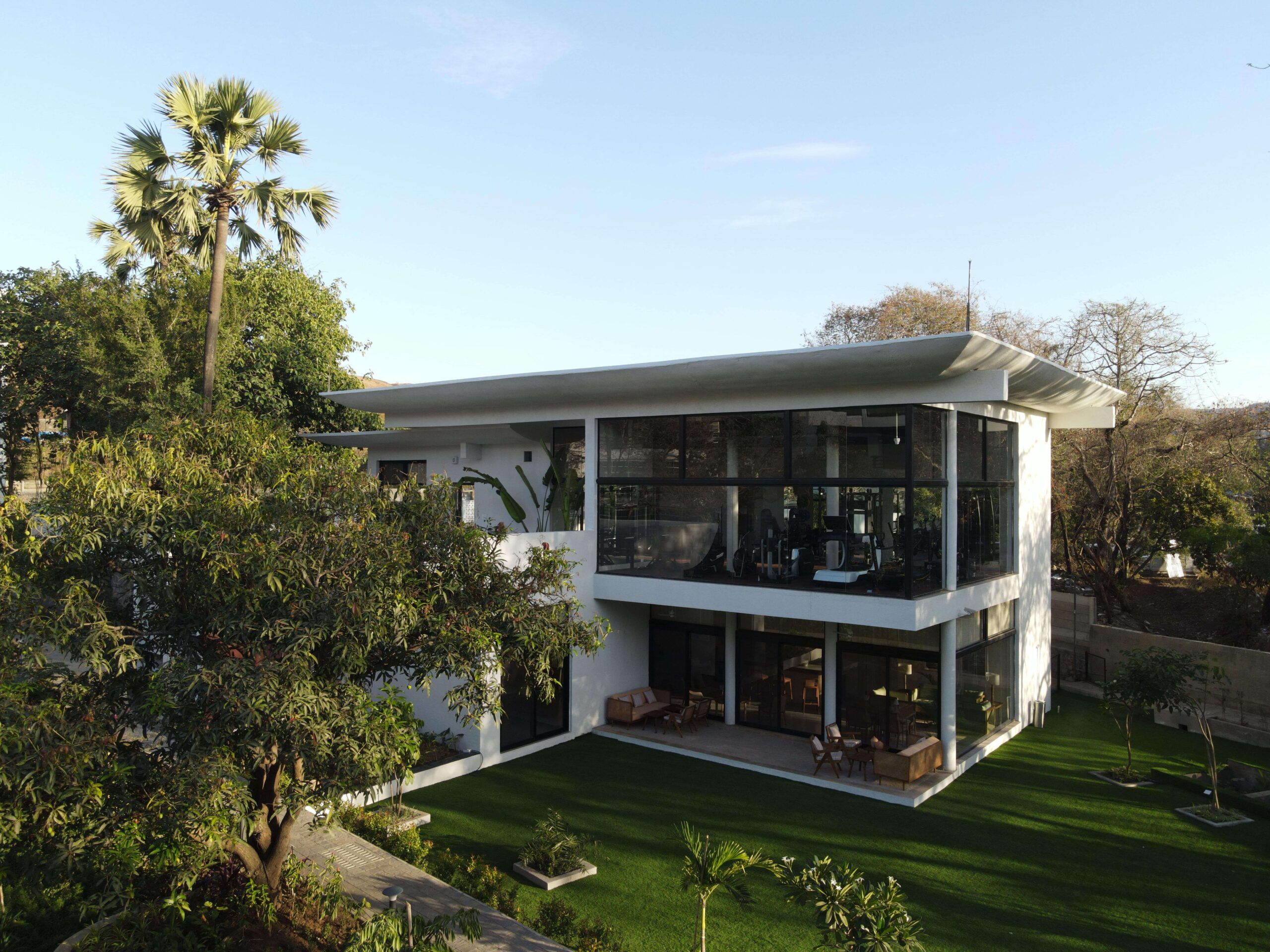Introduction: The Changing Face of Real Estate in India
The real estate in India is evolving faster than ever before. From skyscrapers redefining city skylines to smart homes transforming lifestyles — what once revolved around land and location has now shifted toward experience and trust.
Today’s property market is shaped by a new kind of buyer — one who values transparency, comfort, sustainability, and technology just as much as luxury.
The future belongs to developers who understand that real estate isn’t just about building structures — it’s about building experiences.
At SILA, we’ve witnessed this shift firsthand across both real estate and Integrated Facility Management. As customer expectations evolve, success depends on one thing — putting people at the center of every decision.
Key Trends Shaping Real Estate in India
India’s real estate sector is undergoing rapid modernization, driven by new technologies, regulatory reforms, and changing consumer behavior. Here are some trends defining the future:
- Smart urban living: Cities like Mumbai, Pune, and Bengaluru are seeing a rise in tech-enabled communities with smart security, lighting, and waste management.
- Sustainability as a standard: Buyers now ask about rainwater harvesting, solar energy, and green certifications before price.
- Integrated operations: Developers are collaborating with facilities management companies like SILA to ensure long-term upkeep and value retention.
- Post-purchase care: The customer relationship doesn’t end at handover — it evolves through facility management services that ensure a seamless living experience.
The common thread? Customer experience sits at the heart of every successful project.
Smart Customers, Smarter Expectations
Today’s homebuyers are more informed and digitally connected than ever. They read reviews, check project ratings, and even compare material quality before stepping into a sales office.
They no longer fall for flashy amenities that are hard to maintain. Instead, they ask real, practical questions like:
- What building materials are being used?
- Is there a provision for earthquakes and natural resilience?
- Is every inch of space utilized optimally with open areas for better airflow and light?
- Are lighting systems efficient — with motion sensor detectors and smart energy-saving features?
- Is there enough ventilation and natural light?
- Will the facility management companies maintain these amenities well after handover?
Modern buyers don’t want “unrealistic amenities” that become liabilities — they seek real experiences and practical solutions that improve daily life.
At SILA Real Estate, we understand these expectations. Every project is designed with functionality, comfort, and sustainability in mind — from smart design layouts to long-term operational planning through facility services management.
Experience Beyond Ownership: Why Facility Management Matters
The experience of owning a property doesn’t end when the keys are handed over — that’s just the beginning.
What truly defines satisfaction is how well the space functions day after day.
This is where Integrated Facility Management plays a pivotal role.
A reliable facility management company ensures that everything — from lighting and ventilation to landscaping and waste management — runs seamlessly.
Unfortunately, in many projects, once the builder hands over the property to the society, maintenance quality drops.
Amenities that once looked impressive — swimming pools, gyms, or community halls — are often neglected or underused due to poor upkeep.
That’s why SILA takes a holistic approach.
As both a real estate developer and a facilities and management expert, SILA bridges the gap between construction quality and operational excellence. Our integrated model ensures:
- Proactive maintenance instead of reactive fixes
- Digitized facility dashboards that provide real-time performance data
- Energy-efficient operations using motion sensors, AI, and IoT tools
- Predictive analytics for cost control and efficiency
The result? A property that not only retains its value but continues to deliver a superior living experience for years.
How Data and Design Are Driving Better Real Estate Decisions
The future of facility management India is data-led.
From optimizing energy use to predicting maintenance needs, data helps make buildings smarter and more sustainable.
At SILA, we integrate our facility management solutions with real estate development, ensuring every project benefits from informed decisions — whether it’s material selection, ventilation design, or energy consumption.
Our digital platforms help developers and residents alike monitor performance, identify inefficiencies, and make better choices that reduce costs and improve comfort.
Example: Motion sensor–based lighting and IoT air quality monitoring not only enhance comfort but also reduce power bills by up to 20%.
Why Customers Now Drive Every Real Estate Decision
In today’s competitive landscape, real estate developers must design for experience — not assumption.
Buyers are no longer passive, they’re partners in shaping the property.
This shift has made customer experience the single most important differentiator in real estate in India. Developers that engage customers early, communicate transparently, and deliver on promises are building more than projects — they are building brands.
Real estate companies in Mumbai, for instance, are setting new benchmarks by prioritizing open design, natural light, and sustainable infrastructure — a far cry from the closed, congested structures of the past.
At SILA, we take this further by combining our real estate expertise with facility management India, ensuring the experience remains consistent — from the first viewing to decades after handover.
SILA’s Vision: Seamless Experience from Foundation to Facility
SILA’s integrated model unites real estate development with facility services management, creating a complete ecosystem where experience never stops.
We believe that every successful property must excel in three dimensions:
- Design and Build: Thoughtfully designed, sustainably constructed, and intelligently planned.
- Deliver and Engage: Transparent communication, timely delivery, and responsive service.
- Operate and Maintain: Ongoing facilities management that ensures efficiency, comfort, and longevity.
By combining innovation, data, and customer empathy, SILA ensures that each project is not just a place to live — but a place to thrive.
Conclusion: The Experience Era Has Arrived
The future of real estate in India is experience-driven, sustainable, and customer-led.
Developers who continue to focus only on architecture or amenities will fall behind — while those who design for people, performance, and purpose will lead the way.
At SILA, we are not just building homes — we are shaping experiences.
By bringing together real estate expertise and facility management solutions, we ensure that every project tells a story of quality, innovation, and care.
Because in the new age of Indian real estate, it’s not just about selling space —
it’s about creating spaces that make life better.
About SILA
SILA is one of the leading real estate consulting companies in Mumbai with a tech-driven approach, offering facility management services and real estate advisory. Our expertise as a south mumbai real estate developer ensures that our projects are maintained to the highest standards, providing residents with an unparalleled living experience. We are committed to delivering excellence, making us one of the top real estate companies in Mumbai.
Industries We serve –
Commercial Offices & Buildings | Manufacturing & Heavy Industrial Facilities | Residential Complexes & Townships | Hotels & Campuses | Airports & Malls | IT Parks & Data Centers | Warehousing & Logistics Parks | Banks & Retail
Present in 125 cities –
Ahmedabad | Baroda | Bengaluru | Chennai | Bhubaneswar | Delhi | Gurugram | Noida | Kolkata | Hyderabad | Kochi | Mumbai | Pune & more
Also Read: Key KPIs to Measure the Success of Facility Management Solutions in India
FAQs
1. What is Facilities and Management, and why is it important?
Facilities and Management refers to the strategic coordination of the physical workplace with the people and work of an organization. It ensures buildings are functional, safe, efficient, and conducive to productivity. FM covers everything from maintenance and operations to safety, space planning, and sustainability. It plays a critical role in reducing costs, supporting employee well-being, and aligning the physical environment with organizational goals.
2. What are the core responsibilities of a Facilities Management team?
Key responsibilities include:
- Maintenance and Operations: Routine upkeep, cleaning, repairs, and inspections.
- Space Planning: Optimizing physical space for productivity.
- Safety and Compliance: Meeting health, safety, and environmental regulations.
- Security: Protecting occupants and assets.
- Sustainability: Implementing green, energy-saving practices.
- Cost Control: Budgeting and resource allocation.
- Emergency Management: Ensuring business continuity during crises.
- Technology Integration: Using tools like CMMS and building automation systems.
3. Who is involved in delivering Facilities Management services?
Facilities Management is delivered by a diverse team, including:
- Facilities Managers: Lead strategy, budgeting, and operations.
- Maintenance Staff: Handle repairs and equipment upkeep.
- Cleaning Staff: Maintain cleanliness and hygiene.
- Security Personnel: Ensure the safety of people and property.
- Support Staff: Includes landscaping, groundskeeping, and admin teams.
Each role is essential for the effective functioning of a facility.
4. How does Facilities and Management contribute to cost savings?
Efficient facilities and management can significantly reduce operational costs through:
- Preventive maintenance that avoids expensive repairs.
- Optimized energy usage via smart systems and automation.
- Better space utilization, reducing real estate overhead.
- Streamlined operations and vendor management.
- Lifecycle management of assets, avoiding early replacements.
These practices lead to long-term financial savings while improving performance.
5. What are the benefits of implementing Facilities Management in a business?
Benefits include:
- Enhanced productivity from a well-maintained and safe environment.
- Lower operating costs through efficient resource use.
- Improved safety and compliance, minimizing legal risks.
- Increased property value with well-managed assets.
- Better employee and customer experience through clean, functional spaces.
- Support for sustainability via eco-conscious operations.
In short, Facilities Management drives operational success and stakeholder satisfaction.
About Author -

Aniket Sheth
The insightful content in this blog is curated by Aniket Sheth, our esteemed Senior Vice President of Operations. With an impressive professional journey spanning over 13 years, Aniket has held key positions at prestigious brands, showcasing his exceptional leadership skills.
Aniket’s educational background is marked by an MBA from Cornell University, which laid the foundation for his successful career. He began his professional journey at EY in New York, contributing significantly to enhancing and implementing engagements for Fortune 500 companies.
Aniket’s strategic acumen, proficiency in asset management, and forward-thinking innovation have been instrumental in helping companies streamline their operations and achieve substantial cost reductions. His wealth of experience brings a unique perspective to the world of facilities management, making his insights invaluable for businesses seeking operational excellence.


